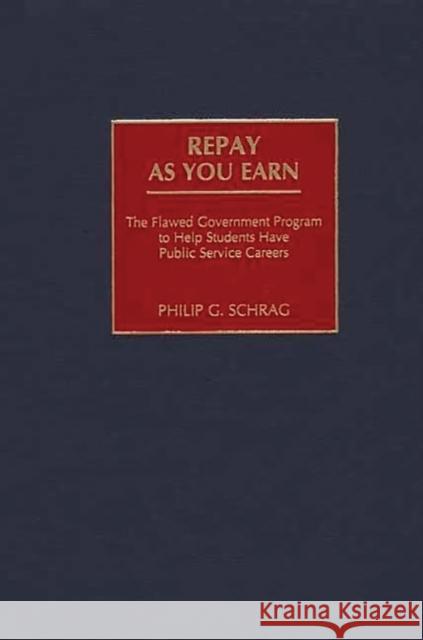Repay as You Earn: The Flawed Government Program to Help Students Have Public Service Careers » książka
Repay as You Earn: The Flawed Government Program to Help Students Have Public Service Careers
ISBN-13: 9780897898348 / Angielski / Twarda / 2001 / 176 str.
In 1993, Congress created a student loan repayment plan intended to enable high-debt graduates to accept low-income, public service jobs by reducing their loan payments and eventually forgiving part of their debts. But this Congressional initiative only helps those with catastrophically low incomes. It has failed to attract many users because, as implemented through regulations of the U.S. Department of Education, it requires payment over too long a period (25 years before forgiveness).
Many students go to graduate and professional schools in pursuit of careers in public service. But they often must borrow $100,000 or more to finance their education. Their loan repayment obligations become so high that they can no longer afford to follow their ideals, and they abandon their plans to have public service careers and seek employment with corporations or firms offering high salaries. The income-contingent repayment plan should have appealed to would-be public interest lawyers, who are among the graduates with the highest debt-to-income ratios; but the plan has failed them, and Schrag explores why and how the plan should be reformed, either by Congress or by the federal administration.











